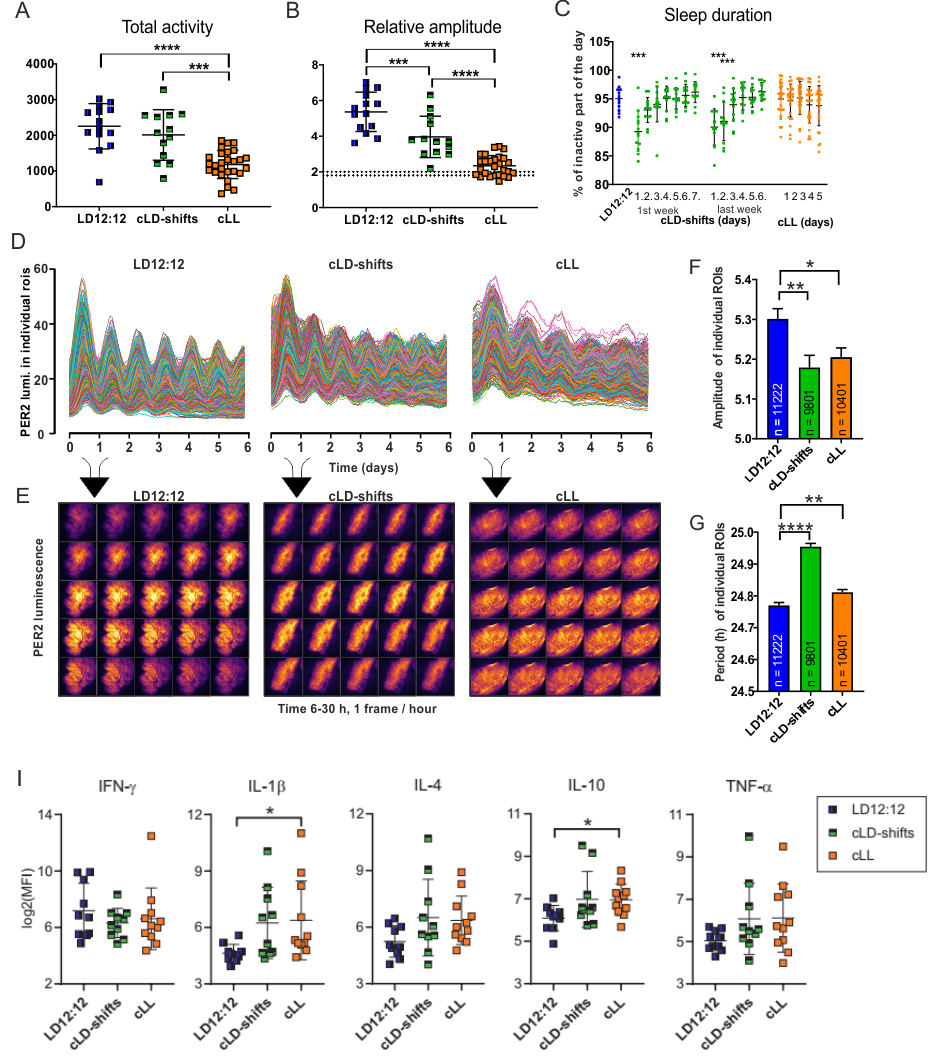New publication (IF=15): Circadian clock in choroid plexus is resistant to immune challenge but dampens in response to chronodisruption. Brain Behav Immun (2024)
Milica Drapšin, Tereza Dočkal, Pavel Houdek, Martin Sládek, Kateryna Semenovykh, Alena Sumová. Brain Behav Immun. 2024 Jan 25:S0889-1591(24)00229-0. doi: 10.1016/j.bbi.2024.01.217.
Choroid plexus (ChP) in brain ventricles plays significant role in brain homeostasis. ChP cells contain robust circadian oscillators that control its function. Chronodisruption in the form of exposure to constant light (cLL) and chronic advance of the light-dark cycle (cLD-shifts) impaired the ChP clock due to disrupted signals originating from the SCN involving glucocorticoid signaling. Sleep patterns and immune markers in the brain were also affected. Interestingly, LPS systemic inflammation did not influence the ChP clock, but disrupted the liver clock. The data highlight the role of ChP in protecting the brain from neuroinflammation. Our results provide a novel link between human lifestyle-induced chronodisruption and the impairment of ChP-dependent brain homeostasis.

Fig. Choroid plexus (ChP) chronodisruption. (A) Total locomotor activity, (B) relative amplitude, and (C) sleep duration of mice reared on
normal light-dark regime (LD12:12), on a chronic phase-shifted light-dark (cLD-shifts) cycle regime, or on a constant light (cLL) regime.
(D-E) 6-day luminescence microscopy of the circadian expression of PER2 protein imaged in ChP explants of analyzed mice,
quantitative analysis of amplitude (F) and period (G) of individual ChP cells. (I) Multiplex analysis of cytokines in plasma of analyzed mice.
